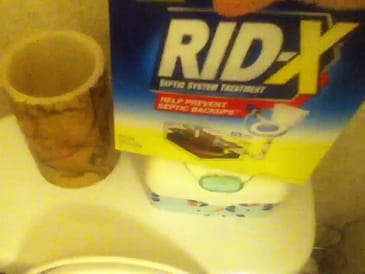RootX vs Copper Sulfate: The Ultimate Guide to Sewer Root Removal
If you’re experiencing slow drains, recurring backups, or foul odors in your home, tree roots might be clogging your sewer lines. Fighting roots in sewer pipes is a battle every homeowner dreads, but the right information can make all the difference. Today, we’re putting two of the most popular chemical solutions—RootX and copper sulfate—head to head. We’ll cover how each product works, their safety, effectiveness, environmental impact, cost, and more. Plus, you’ll hear from homeowners and plumbers who’ve fought the root wars themselves.
Let’s dig in!
What Causes Roots in Sewer Pipes?
How and Why Do Tree Roots Invade Pipes?
Tree roots naturally seek moisture and nutrients to fuel their growth. Sewer pipes, especially older or cracked ones, leak tiny amounts of water and organic matter, creating an irresistible attraction for nearby roots.
Even a microscopic crack or loose joint is enough to release vapor. Roots detect this moisture through the soil and grow towards it. Once they reach the pipe, they slip into the tiniest opening, where they find a constant supply of water and nutrients, and quickly begin to spread inside the pipe.
“It doesn’t take long for roots to take over. We’ve seen roots fill a six-inch pipe in just a couple of years,” says Mike, a plumbing contractor in Illinois.
Real-World Example
Consider the Johnson family from Minneapolis. They had a beautiful maple tree in their front yard, about 20 feet from their house. “We thought it was far enough from the sewer line,” recalls Mrs. Johnson. “But after a few years, we started noticing backups every spring. The plumber pulled out a clump of roots as thick as my wrist from our sewer cleanout.”
Common Signs of Root Intrusion
- Slow-draining sinks, tubs, or toilets
- Frequent clogs or backups—especially after rain
- Gurgling noises from the toilet or drains
- Unpleasant sewer odors in the house or yard
- Patches of lush, green grass above the sewer line
Ignoring root intrusion can lead to total blockages, pipe collapse, and expensive excavation work.
What is Copper Sulfate?
The Classic Chemical Root Killer
Copper sulfate (chemical formula: CuSO₄) is a bright blue crystal, commonly used as an algaecide, fungicide, and root killer. For generations, homeowners have poured copper sulfate into their toilets to kill roots in sewer pipes.
How It’s Used
- DIY Application: Pour crystals into the toilet or a sewer cleanout, then flush repeatedly.
- The copper ions are carried by water through the pipe, killing roots on contact.
“My dad always kept a box of copper sulfate in the laundry room. Twice a year, he’d dump some down the toilet to keep the roots at bay,” remembers Tom, a homeowner in Ohio.
Pros of Copper Sulfate
- Affordable: A $15-$20 box is enough for several treatments.
- Widely Available: Sold at hardware, home improvement, and garden stores.
- Simple to Apply: No mixing or special equipment needed.
Cons of Copper Sulfate
- Limited Reach: Only kills roots at the bottom of the pipe where water flows.
- Corrosive: Over time, it can damage metal pipes.
- Environmental Hazard: Toxic to aquatic life and can contaminate soil.
- Health Risks: Can irritate skin, eyes, and lungs.
Example
Mrs. Patel from New Jersey had used copper sulfate for years. “It worked pretty well for a while, but eventually the blockages kept coming back. Plus, I worried about what it was doing to our old cast iron pipes.”
What is RootX?
The Modern, Foaming Solution
RootX is a foaming root killer designed specifically for sewer and septic systems. The active ingredient is dichlobenil, a selective herbicide used to target plant roots without harming pipes.
How It’s Used
- Powder and Water: Mix RootX powder with water in a bucket or pour into a toilet and flush.
- Foaming Action: The mixture reacts with water to create a thick foam that fills the pipe, sticking to every surface and coating roots throughout the line.
“The foam is the game-changer,” says plumber Maria Lopez from California. “It clings to the roots, even on the sides and top of the pipe, not just the bottom.”
Pros of RootX
- Full Coverage: Foam fills the pipe, killing roots all around.
- Prevents Regrowth: Forms a barrier to inhibit new roots for up to a year.
- Safe for Pipes: Non-caustic and non-corrosive. Registered with the EPA.
- Less Environmental Impact: Doesn’t leach copper into waterways.
Cons of RootX
- Higher Cost: $50–$150 per treatment.
- Availability: May need to order online or through a plumbing professional.
- DIY or Pro: While many homeowners use RootX themselves, some prefer a plumber for thorough application.
Example
The Smiths from Colorado switched to RootX after their plumber recommended it. “We were skeptical at first because of the price, but after two years without a clog, it was worth every penny,” Mr. Smith says.
How Does Each Product Work?
Copper Sulfate: The Traditional Approach
When you pour copper sulfate into your toilet, it dissolves and is carried by the flow of water through your sewer line. As the solution travels, copper ions kill roots they touch. However, because water flows along the bottom, only roots in the lower part of the pipe are affected.
Example
Imagine a pipe with roots growing like a spiderweb at all angles. Copper sulfate may kill the roots at the “floor” of the pipe but leaves those at the top and sides untouched.
RootX: The Foaming Advantage
RootX is mixed with water and poured into the pipe, where it reacts and foams up. The foam expands to fill the entire pipe, coating roots on the top, sides, and bottom. The active ingredient, dichlobenil, penetrates the roots, killing them and creating a barrier that discourages new growth for months.
Example
After a RootX treatment, homeowners often report that their sewer lines remain clear for a year or more, even if they’ve had chronic problems before. “We used to call the plumber every six months,” says Dan from Seattle. “After RootX, we went 18 months before our next cleaning.”
RootX vs Copper Sulfate: Effectiveness
Speed of Action
- Copper Sulfate: Takes several days to start working and may require multiple treatments.
- RootX: Begins killing roots almost immediately, with most results noticeable within a week.
Example
A local plumbing company in Atlanta compared the two by treating two nearly identical homes—one with copper sulfate, one with RootX. The RootX home saw clear pipes after a single treatment, while the copper sulfate home needed follow-up snaking after two weeks.
Long-Term Results
Copper sulfate only kills roots it touches. Since water flow is limited to the bottom of the pipe, roots at the sides and top grow unchecked and quickly return. Most users need to reapply copper sulfate every few months.
RootX’s foaming action kills and inhibits all roots in the pipe. Many users report going a full year—or more—between treatments.
“We used copper sulfate for years and always had to snake the line. One treatment of RootX lasted over a year,” says Beth, a landlord in Michigan.
RootX vs Copper Sulfate: Safety
For Your Pipes
- Copper Sulfate: Can corrode cast iron, steel, and galvanized pipes over time. This is especially problematic in older homes.
- RootX: Safe for all common pipe materials, including PVC, clay, and cast iron.
Example
A homeowner in Boston with 70-year-old clay pipes switched from copper sulfate to RootX after noticing flakes of pipe in her cleanout. Her plumber explained that repeated copper sulfate use had contributed to the deterioration.
For Your Health
Copper sulfate is a hazardous chemical. Direct contact can cause skin burns, eye irritation, or respiratory issues. Ingesting even small amounts is dangerous for children and pets.
RootX should be handled with care (gloves are recommended), but it is classified as “low toxicity” by the EPA. Normal use as directed poses minimal risk.
For Your Lawn and Garden
Copper sulfate can leach into the soil and kill grass, plants, and beneficial soil microbes. RootX is designed to stay within the pipe and has a much lower risk of harming your landscape.
Environmental Impact
Copper Sulfate: The Environmental Drawbacks
When copper sulfate is flushed through the sewer, some of it may escape into the environment through leaks or overflows. Copper accumulates in soil and water, where it is toxic to fish, amphibians, and aquatic plants. Repeated use can lead to long-term contamination.
“We stopped recommending copper sulfate after seeing fish kills in local streams,” says environmental engineer Dr. Sarah Wu.
RootX: Lower Environmental Risk
RootX’s active ingredient, dichlobenil, is much less toxic to aquatic life. It is registered with the EPA for use in sewers and is less likely to escape into groundwater or waterways.
Example
The city of Portland, Oregon, banned copper sulfate for sewer use in 2005 after measuring rising copper levels in local rivers. The city now recommends foaming root killers like RootX as safer alternatives.
Cost Comparison
Upfront Cost
- Copper Sulfate: $15–$20 per box, enough for 1–2 treatments.
- RootX: $50–$150 per treatment (depending on pipe length and supplier).
Long-Term Cost
Because copper sulfate needs to be reapplied every few months and can accelerate pipe corrosion, it’s often a false economy.
RootX, though pricier per application, lasts longer and can help prevent costly pipe repairs by discouraging regrowth and being gentler on pipe materials.
Example
The Martinez family from Arizona used copper sulfate for years, spending about $60 annually. After a $6,000 pipe replacement (in part due to corrosion), they switched to RootX. “We wish we’d known sooner. It would have saved us thousands,” Mrs. Martinez says.
Professional Insights & Real User Experiences
Plumbers’ Perspective
Plumbers see the results of both products firsthand. Most recommend RootX for clients who want a long-term solution.
“Copper sulfate is a quick fix, but RootX is for people who want to solve the problem, not just delay it,” says Tony, a master plumber from Dallas.
Homeowner Experiences
- Karen, Wisconsin: “Copper sulfate worked, but only for a few months. With RootX, we went an entire year with no backups.”
- Jorge, Florida: “Our plumber used RootX after two copper sulfate failures. Haven’t had any issues since.”
- Leah, Oregon: “We have pets and a garden, so we were worried about copper. RootX felt like a safer option.”
Municipalities
Many city sewer departments no longer allow copper sulfate for root control due to environmental regulations. They recommend or use foaming herbicides like RootX.
Frequently Asked Questions
Is it safe to use copper sulfate in septic systems?
No. Copper sulfate can kill the beneficial bacteria that make your septic system work. Over time, this can lead to system failure, requiring expensive repairs.
How often should I use RootX?
For most homes, once a year is enough to keep roots under control. Properties with severe or recurring issues may need a second treatment annually.
Can I use both products together?
It’s unnecessary and may increase risk to pipes or the environment. Stick to one product and follow the recommended schedule.
Will RootX kill my tree or bush?
No. RootX only affects roots inside the pipe. It does not travel back to the tree or bush, so your landscaping is safe.
Do I need a plumber to apply RootX?
Not necessarily. RootX is available for homeowner use and comes with instructions. However, a professional plumber can ensure complete and even coverage, especially if you have a complex sewer system.
Conclusion: Which Root Killer Should You Choose?
Copper sulfate is cheap and easy to find, but only treats the bottom of the pipe, poses safety and environmental risks, and may harm older plumbing.
RootX is more expensive upfront but offers comprehensive root killing and regrowth prevention, is safer for pipes and the environment, and is preferred by most professionals and municipalities.
If you want a quick, low-cost fix, copper sulfate might be tempting. But for lasting results, safety, and peace of mind, RootX is the winner.
“The extra cost of RootX pays for itself in fewer plumber visits and less stress,” says plumber Maria Lopez.
Armed with these facts and real-world stories, you can confidently choose the right solution for your home’s sewer root problems. If you’re tired of repeat clogs and want a safer, longer-lasting fix, RootX is likely your best bet.




